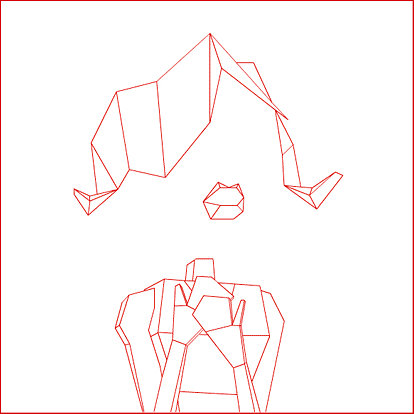In rapture, back to back, sacroiliac
There is a curious text, of an author who, I don’t know why, isn’t read anymore. A psychiatrist, son of an abominable historian of philosophy of the 19th century. He was called Pierre Janet. He used to be very well-known. He was more or less contemporary to Freud, his career is quite parallel to Freud’s. And neither of them understood the other. It’s very curious, there were endeavors to get them in touch but they didn’t get along. Their starting points were the same, it was hysteria; Janet initiated a very important conception of hysteria and he did a quite curious psychology which he proposed to name “Psychology of the Conduct,” even before Americans propounded the “Behavior Psychology.”
Roughly the method was: a psychological determination given, look for the type of conduct it represents. It was very interesting; he said: memory. The memory. Well it bears no interest, it doesn’t mean anything to me. I ask myself: what is the type of conduct one can hold when one remembers? And his answer was: the narration.
Hence, the famous definition of Janet: the memory is a conduct of narration. The emotion, he said, the emotion, one can’t feel if one can’t set down. You see, he used the conduct as a system of coordinates for all things. Everything was conduct.
I have a childhood memory which has impressed me forever. We all have childhood memories like this. It was during the holidays, my father used to give me Mathematics lessons. I was panic-stricken and it was all settled. That is to say, up to a point, I suspect we both did it already resigned, since we knew what was going to happen. In any case, I knew, I knew what was going to happen beforehand, because it was all settled, regular as clockwork. My father for that matter knew not much of Mathematics but he thought he had, above all, a natural gift for enunciating clearly. So he started, he held the pedagogical conduct, the pedagogical conduct. I was doing it willingly because it was no kidding subject at all; and I held the taught conduct. I showed every signs of interest, of maximal understanding, but all very soberly, and very fast there came a derailment. This derailment consisted in this: five minutes later, my father was yelling, set to beat me and I found myself in tears, I have to say, I was really small, and weeping. What was it? It is clear, there were two emotions. My deep grief, his deep anger. What did they respond to? Two failures. He has failed in his pedagogical conduct, he didn’t manage to explain at all. Of course he didn’t, he wanted to explain it to me with algebra, as he always said, because it was simpler and clearer this way. Then if I protested… and there it derailed. I protested arguing the teacher would never let me do algebra because when a six-year-old is given a problem, he hasn’t got the right, he is not supposed to do algebra. So the other was maintaining that it was the only clear way. Well, therefore, we both got into a tizzy. Misfire in the pedagogical conduct: anger; misfire in the taught conduct: tears.
All right. It was a failure. Janet said: emotion, it’s very simple, it’s a failure of conduct. You are upset when there is, when you hold a conduct and this conduct fails; then there is emotion.
{ Gilles Deleuze, Courses at Vincennes, 1980 | Continue reading }



